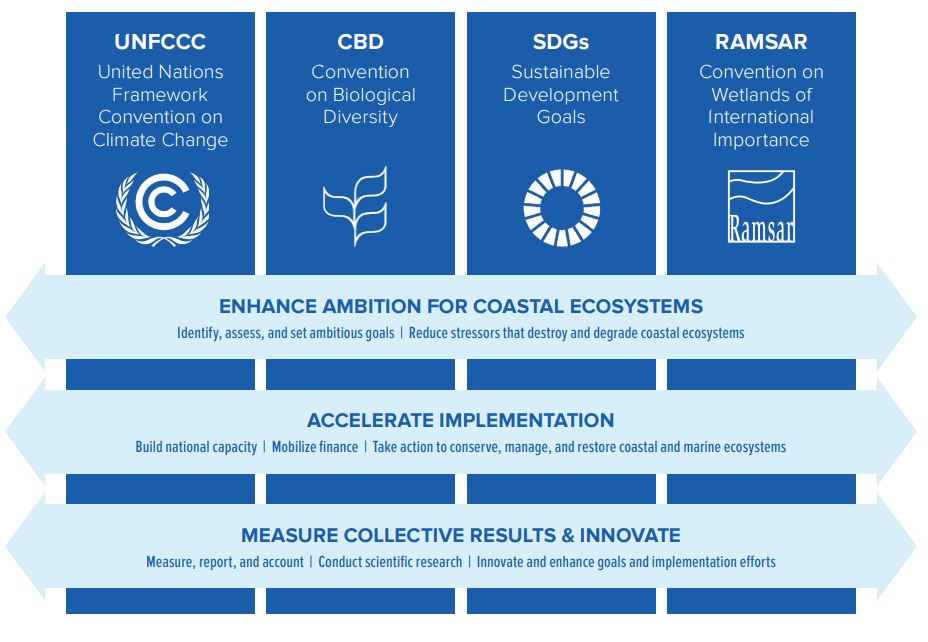International Union for Conservation of Nature | Source | Download |
Blue carbon ecosystems, including mangroves, seagrasses, and tidal marshes, are crucial for climate mitigation, biodiversity, food security, and coastal protection. Despite their importance, these ecosystems are under threat from climate change and human activities, leading to significant carbon release and ecosystem degradation. This policy framework, developed by Conservation International (CI) and the International Union for Conservation of Nature (IUCN), outlines strategies for integrating blue carbon ecosystems into international policy processes.
Key Recommendations
- Align International Policies: Integrate blue carbon ecosystems into key international frameworks such as the UNFCCC, CBD, Ramsar Convention, and SDGs. Update Nationally Determined Contributions (NDCs) and National Biodiversity Strategies and Action Plans (NBSAPs) to reflect blue carbon goals, aligning them with global climate, biodiversity, and sustainability targets.
- Accelerate Implementation: Strengthen national capacity and mobilize financing for blue carbon projects. Encourage collaboration between UNFCCC, CBD, and Ramsar’s initiatives to support blue carbon conservation. Ensure Indigenous peoples and local communities are included in project design and implementation.
- Measure and Innovate: Implement standardized methods for measuring and reporting blue carbon outcomes. Incorporate blue carbon data into global progress reviews like the UNFCCC Global Stocktake. Advance scientific research to enhance restoration and management practices.
Figure | Aligning commitments and actions across international policy processes can enhance ambition, accelerate implementation, and streamline reporting for the conservation, restoration, and sustainable management of coastal blue carbon ecosystems.





